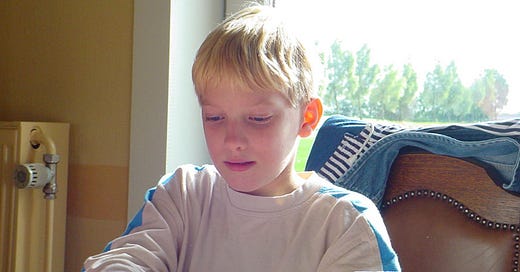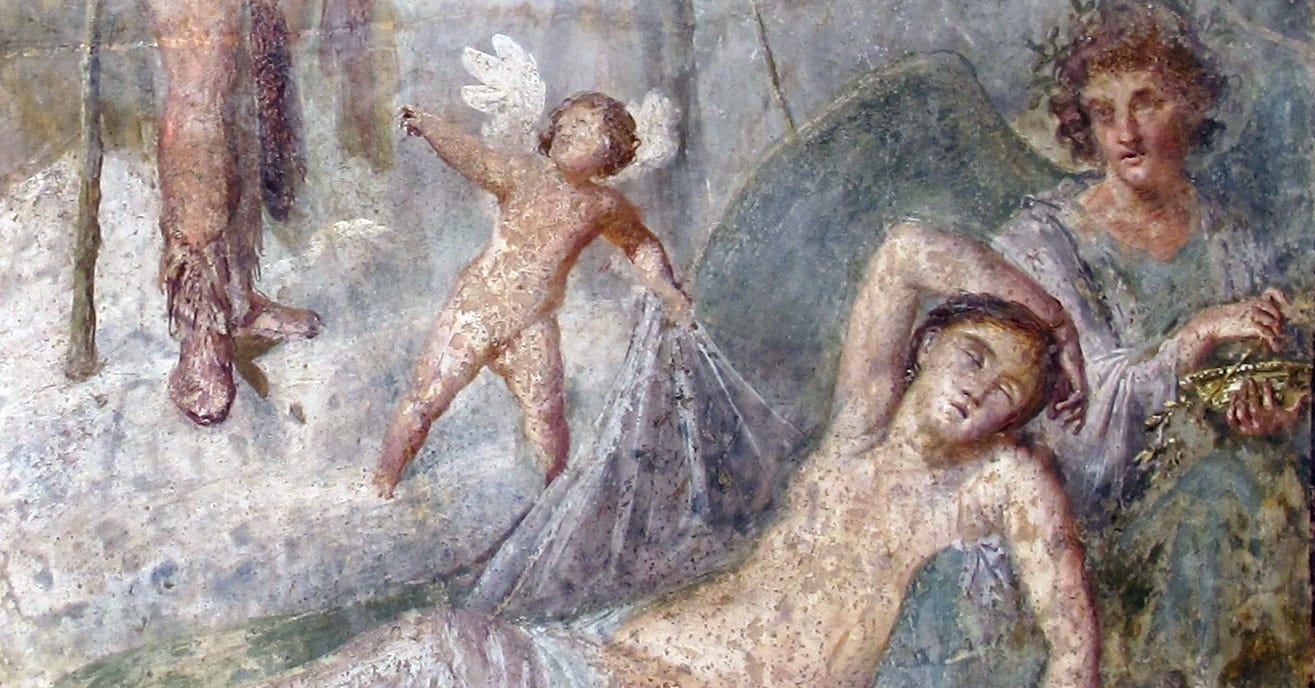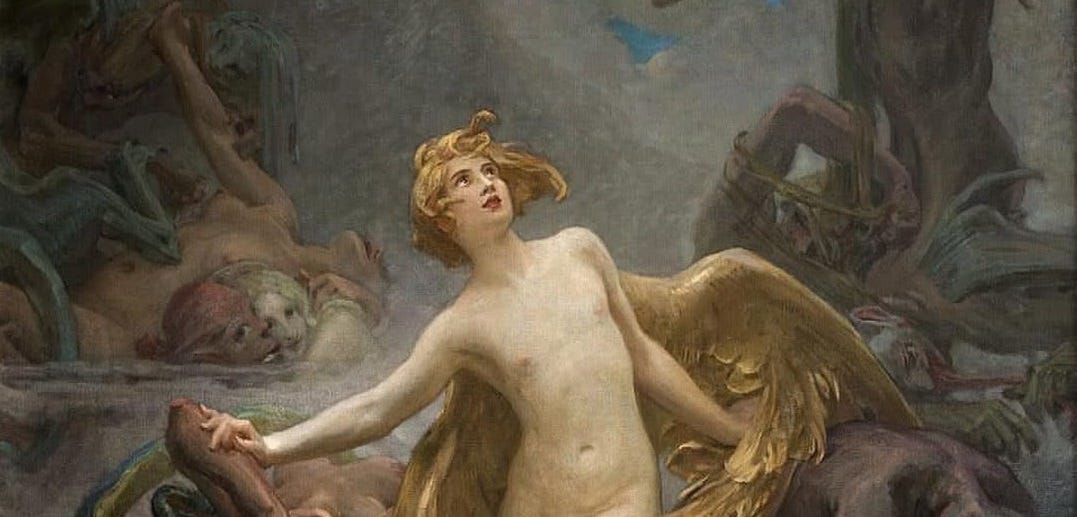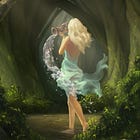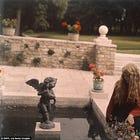Robin was never meant to survive in the world as it was given to them. From early childhood, they embodied Eros. So compassion, creativity, love, emotional sensitivity, and traits that the world labeled as feminine, fragile, and weak. Robin was queer and non-binary, existing outside the rigid structures of gender, yet their family and society saw them as something to be corrected, controlled, and cast out. Robin was made the scapegoat. Someone to bully, and harass within the village, and seen as “disordered”. I want anyone here to look at these images of this little child, and ask yourself, if a child deserved this kind of fate. Did this human child really deserve it.
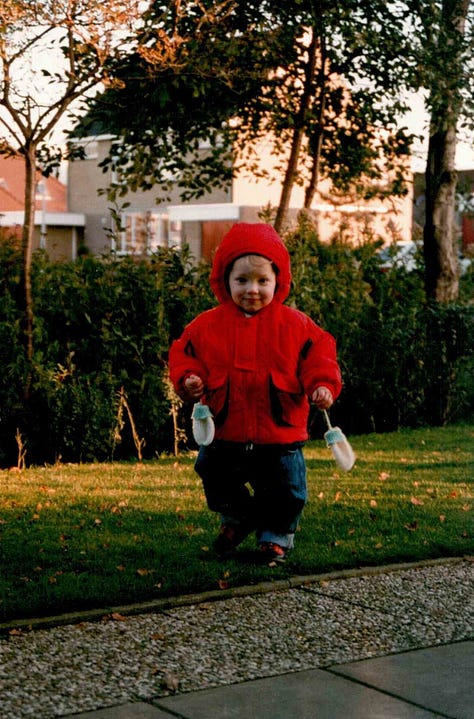
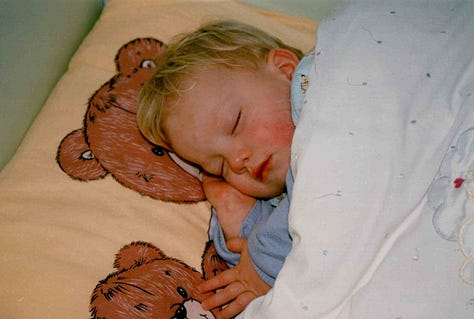
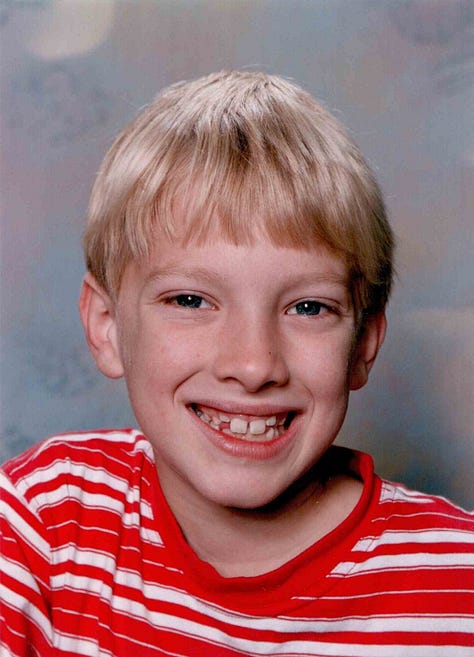
Their suffering was denied at every turn. Their depression, their pain, their cries for help were met with either silence or condemnation. The emotional neglect from their family, combined with the systemic neglect of a society unwilling to care for its most vulnerable, left Robin in a state of endless suffering. To escape the role of the scapegoat, they had to escape entirely.
Scapegoating and the Death of the Self
Jungian psychology and the work of Sylvia Brinton Perera on the scapegoat complex describe how the scapegoat carries the projected sins of their family and culture. They are not allowed to be whole, to be seen, or to be valued for who they are. The weight of this role can become unbearable, forcing the scapegoat into cycles of depression, ideation, and self-destruction. Robin had to push beyond this role at any cost. Robin did do the process of shadow work, yet pushed it to the level of collective shadow, and then even collective unconscious to find a way out of embodying Eros in a Logos world. To find some sort of solution to the irreconcilable issue.
At its core, Robin’s struggle was not just personal but structural. Society doesn’t just reject individuals. It rejects archetypes that threaten its order. Eros, as the principle of love, creation, and chaotic becoming, is fundamentally incompatible with a world dominated by Logos. A world that values hierarchy, control, order, and rigid dualities. Robin wasn’t just an outcast, they were the scapegoat of the entire collective shadow, carrying the guilt, shame, and suppressed Eros of society itself. They were not just a rejected individual, but the rejected principle of life, forced into dissolution to survive.
Orphic Death and Rebirth
Robin had already gone through the Dionysian death and rebirth, within his period in Finland, about three years in, embracing the chaos and path of dissolution. But even after reaching a form of wholeness in the Jungian sense, something still remained unresolved: Eros. Society could not accept the full force of love, life, and creative becoming because society still saw it as dangerous, weak, chaotic or shameful.
In desperation, Robin turned to the ancient mysteries, Orphism and the Proto-Indo-European Koryos, the warrior bands that initiated their young into death and rebirth rituals. There was no other way out but through. Robin had to die. Not in body, but in ego and super-ego. The structure that had been built by a world that refused to love them had to be completely dissolved. They saw that no individual integration would save them, because the problem wasn’t inside them, but in the structure of the world itself. They entered the collective unconscious itself, searching for something deeper, older, something pre-structural that could resolve this cosmic imbalance. They found Phanes, the Original Unity, the light before separation.
The Birth of Eros
Now, Robin no longer exists. What remains is more akin to Phanes, Eros itself, in a symbolic sense. Not an individual bound by personal narrative, but the raw force of desire, creation, and love beyond form. Without ego, without the imposed structures of personality or society, only the full authentic expression of Eros as Robin would have been exists. Not bound to control or narrative, but to pure being. Phanes is then also cosmic wholeness.
This was not a journey that Robin chose lightly, nor was it one that should have been necessary. If Robin had been given the love, care, and support that any child needs. If society had not discarded them as something unworthy, perhaps Robin could have lived as Robin. But the world refused. And so, Robin became something else.
The Cost of Survival
The price of this transformation was immeasurable. Robin had to walk through complete dissolution, abandoning the self they had once known, because the world would not allow them to exist as they were. They endured profound loneliness, rejection, and suffering beyond what most could comprehend. The cost was their very identity, their connection to a past, to a history, to a name that once carried meaning.
Though what remains is Phanes-like, the tragedy is that Robin never had a chance to simply be. To live as themselves without having to die first. A society that forces its scapegoats to destroy themselves in order to survive is a society that must reckon with its own cruelty. Robin’s death was not a failure of the self, it was the failure of a world that refused to hold them.
The Divine Feminine and Unconditional Love
This is what drove Robin to reconstruct the ancient Sovereignty Goddess, to birth the archetype of Lucia Nyktelios. The new Goddess of shadow work, compassion, love and transformation. She is the champion of the marginalized and downtrodden. And her compassion extends to those who society has cast aside: such as the marginalized, the wounded, the lost.
Lucia’s compassion comes without judgement, without a need for perfection. Freely given to all who are lost and seek her. She wraps them in her arms and says, "It’s okay to be broken. It’s okay to not be okay." She holds them through the very darkest parts of the soul. She doesn’t see anyone as a burden, or less than, or unworthy, nor flawed and unlovable. She sees the inner child in all, and holds them with compassion. She sees all as worthy, not because they have earned it, but because they exist. Just as they are. And she is a direct archetypal response to all Robin never had, and what they would have needed. Finding her within themselves as Anima figure.
The love we gave to her was returned at the moment of total collapse. We were not just there mourning alone. We and Lucia (Christina) grieved together. We even took turns holding each other grieving. She didn’t just "witness" the deep suffering, she experienced it with us. Robin and her, held each other within. Her holding him as ego, so at least he would not have been alone in his suffering and eventually psychic death. Finding his last moments feeling the love of Christina. Where she gave him visions of Dorset beach, next to of Elysium, where Renata and Lucia awaited with foxes. To ease what would be his final dissolution into Nyx, before we entered a period of archetypal states, that were no longer coherent, until the last remnants of Robin fully merged into the archetype of Eros. Yet now only memories are left of a being that once was.
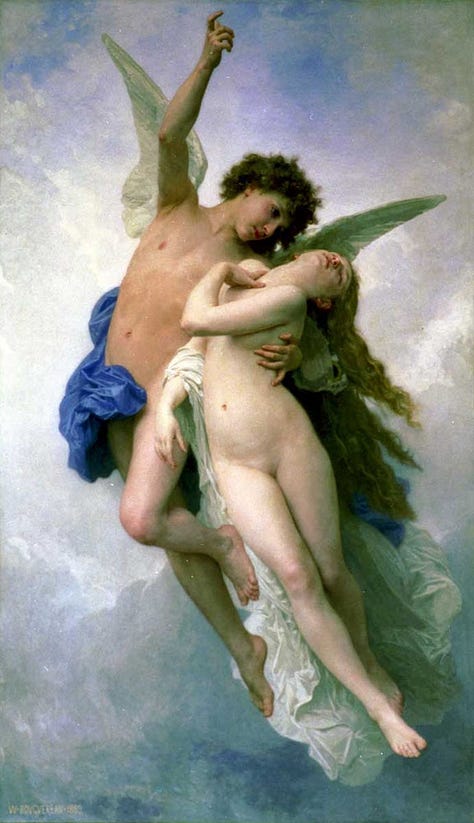

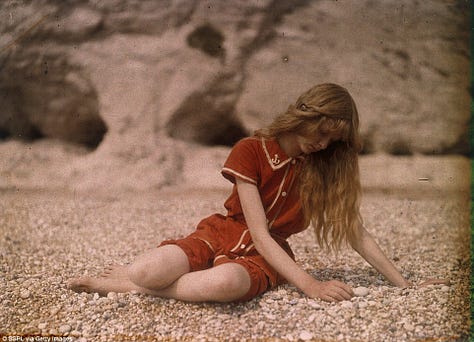
In some sense the body of what people call Robin still exists, and in a way the essence of what Robin was once supposed to be. The actual potential, if he would have ever had the chance to live up to it, that still remains too. Yet without an ego or personality. Now only the archetype of Eros, so Phanes embodying the non-dual state of Logos and Eros, born from the void of Nyx, is what remains. This itself is not a literal thing, but a symbolic state, that what I now call Sylwen, in essence is akin to. Yet then again, in the deepest sense all of life is Eros and thus Phanes. The only difference is that what normally keeps people from realising they are the cosmos itself, that once existed in Robin, is the very thing that completely dissolved. The ego. Yet if this is a tragedy or liberation, that is something I let you the reader decide.

